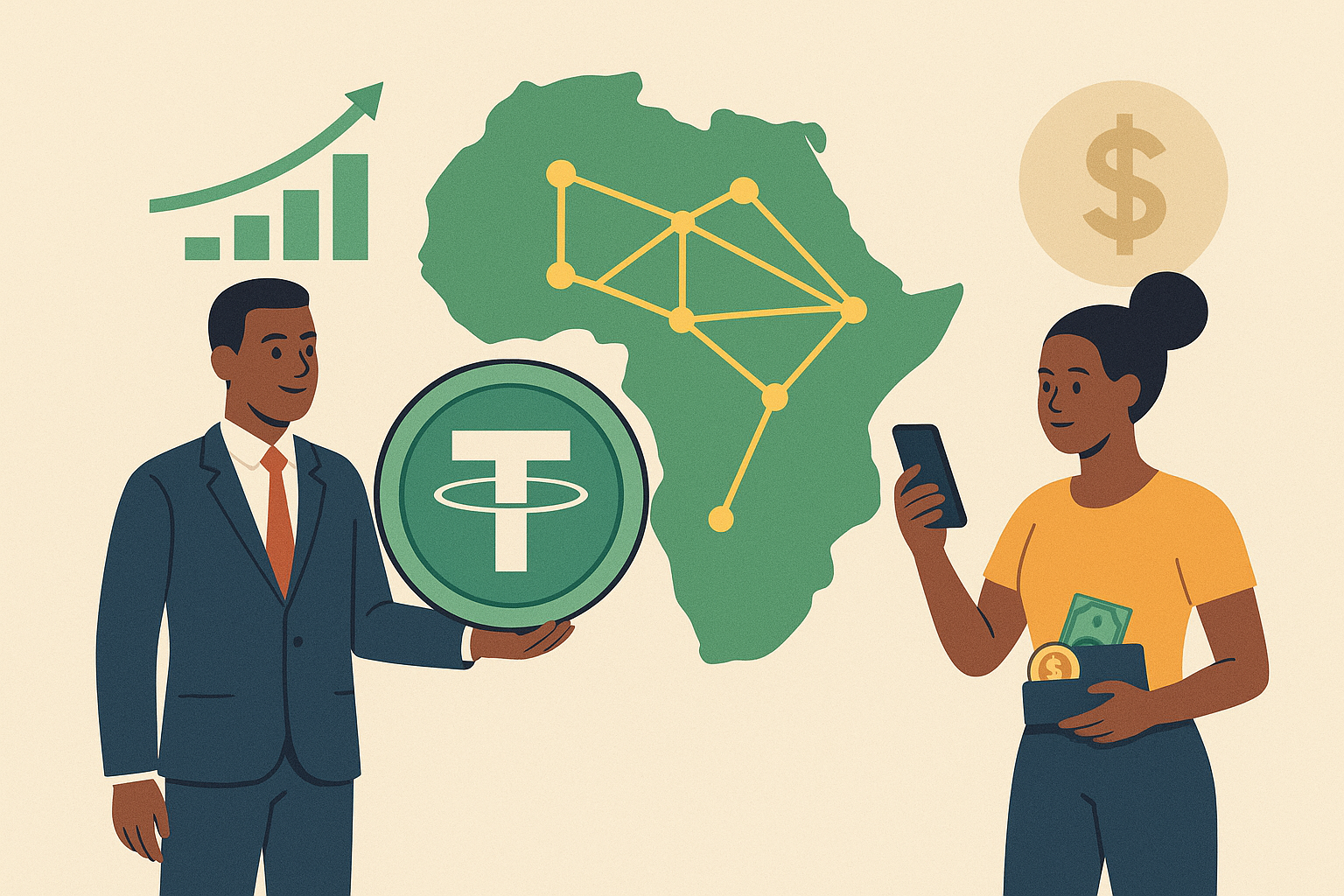Maharashtra Chief Minister Proposes Blockchain For Electoral Rolls To Enhance Transparency And Security
Introduction
In a groundbreaking development for India’s election process, Maharashtra’s Deputy Chief Minister, Devendra Fadnavis, has called for the implementation of blockchain technology to manage electoral rolls. The proposal, which aims to introduce a new level of transparency and security, comes in the wake of growing concerns regarding the accuracy, accessibility, and potential manipulation of voter data. Blockchain, with its inherent capabilities for immutability and decentralized verification, presents a promising solution to address these challenges.
This move reflects a broader global trend where governments and public institutions are increasingly turning to advanced technologies, such as blockchain, to improve the efficiency and integrity of their operations. In this article, we explore the proposal in detail, the potential benefits of blockchain in electoral roll management, and the challenges that could arise in the implementation of such a system.
The Need For Blockchain In Electoral Rolls
India is the world’s largest democracy, with over 900 million eligible voters. Ensuring the accuracy and integrity of electoral rolls is critical to upholding the democratic process. However, India has faced several challenges over the years concerning the management of electoral data, including issues like duplicate entries, voter fraud, and the exclusion of eligible voters.
These challenges have led to public distrust and skepticism about the integrity of the electoral system. Voter fraud, such as bogus voting, and the possibility of tampering with voter data have been significant concerns. The decentralized and tamper-proof nature of blockchain technology presents a potential solution to these issues, offering a way to protect voter data from manipulation and ensuring that electoral rolls are up-to-date and accurate.
Fadnavis’ proposal to use blockchain for managing electoral rolls could significantly improve the system’s reliability and transparency. By leveraging blockchain’s ability to create immutable records, the government could ensure that once a voter’s details are entered into the system, they cannot be altered or tampered with without detection. This would help maintain the authenticity of electoral rolls and increase public confidence in the election process.
How Blockchain Can Transform Electoral Roll Management?
Blockchain is a distributed ledger technology that allows data to be stored across a network of computers in a way that ensures transparency, security, and immutability. Each record, or “block,” is linked to the previous one, creating a chain of blocks that cannot be altered retroactively. This makes blockchain highly resistant to tampering and fraud, two critical issues in electoral roll management.
In the context of electoral rolls, blockchain could be used to store voter information in a decentralized ledger. Voter data would be stored securely, with each entry being timestamped and encrypted, making it virtually impossible for unauthorized individuals to alter or delete records. Furthermore, because the ledger is decentralized, no single entity would have full control over the data, reducing the risk of manipulation.
Blockchain also offers the potential for real-time updates to voter records. As new voters register or existing voters update their details (such as changing addresses), the information can be recorded instantly across the entire blockchain network. This would help keep electoral rolls current, reducing the likelihood of outdated or incorrect data being used during elections.
Additionally, blockchain’s transparency features would allow all stakeholders, including political parties, election observers, and the general public, to verify the integrity of the electoral rolls. Public access to the blockchain ledger would make it easy to detect any discrepancies or irregularities in the voter database, further strengthening the credibility of the election process.
Advantages Of Blockchain In Electoral Roll Management
The introduction of blockchain in managing electoral rolls offers several advantages, which are outlined below:
1. Enhanced Transparency
One of the most significant benefits of using blockchain in electoral roll management is increased transparency. Blockchain’s decentralized nature allows anyone with access to the network to verify the accuracy of voter records. This open and transparent system reduces the likelihood of manipulation or fraudulent activity, as any changes to the records would be visible to all parties involved.
By providing greater transparency, blockchain can help restore public trust in the election process, which is essential for a healthy democracy. Citizens would have the confidence that their votes are counted accurately and that there is no manipulation of electoral data.
2. Increased Security
Blockchain technology’s security features are one of the primary reasons for its adoption in various sectors. The use of cryptographic techniques ensures that voter data is encrypted and stored securely. Each change to the blockchain is verified by multiple participants in the network, ensuring that only legitimate updates are accepted.
This heightened level of security makes it much harder for malicious actors to tamper with electoral rolls. In the past, incidents of voter data being altered or deleted have raised concerns about the integrity of elections. With blockchain, any such manipulation would be immediately noticeable, protecting the electoral process from fraud.
3. Reduced Voter Fraud
Voter fraud, including practices like voting under fake identities or using duplicate voter registrations, is a significant concern in many elections. Blockchain can help prevent such fraud by providing a permanent, immutable record of each voter’s identity. Once a voter is registered on the blockchain, their details cannot be altered without proper authorization, reducing the chances of fraudulent votes being cast.
Furthermore, blockchain’s decentralized nature means that no single entity controls the voter database, making it more difficult for bad actors to manipulate the system. This feature could be particularly useful in regions where voter fraud has been a persistent problem.
4. Improved Accessibility
Blockchain could also make electoral rolls more accessible to voters, election officials, and other stakeholders. In a blockchain-based system, voters could easily verify their registration status or make updates to their details online. This would eliminate the need for cumbersome paper records or time-consuming visits to election offices.
For election officials, blockchain would simplify the process of updating and maintaining voter data. Instead of relying on centralized databases, which can be prone to errors and delays, officials could directly update the blockchain in real time, ensuring that voter information is always accurate and up to date.
Challenges And Considerations
While the benefits of blockchain in electoral roll management are clear, there are several challenges that must be addressed before such a system can be implemented at a national scale.
1. Technological Infrastructure
One of the biggest challenges in implementing blockchain for electoral rolls is the need for robust technological infrastructure. Blockchain networks require significant computational power and storage capacity to operate efficiently. Ensuring that the necessary infrastructure is in place to support a nationwide blockchain system would require considerable investment in technology and resources.
Moreover, India’s diverse digital landscape presents challenges in terms of internet connectivity, digital literacy, and access to technology. While blockchain could be transformative, its success would depend on ensuring that all citizens, particularly those in rural and remote areas, have access to the necessary tools to interact with the system.
2. Privacy Concerns
Voter data is highly sensitive, and ensuring its privacy is crucial. While blockchain provides strong security features, the transparency of the system could lead to concerns about the privacy of voters’ personal information. Striking the right balance between transparency and privacy will be essential to the success of a blockchain-based electoral roll system.
In particular, the issue of data sovereignty must be addressed. Blockchain’s decentralized nature means that voter data could potentially be stored across multiple jurisdictions, raising concerns about how data is managed and protected across borders.
3. Legal and Regulatory Issues
The adoption of blockchain for electoral rolls would require changes to existing laws and regulations. The legal framework for managing elections and voter data in India is based on centralized systems, and transitioning to a decentralized system would require significant legal adjustments.
Additionally, there may be challenges in terms of the accountability of election officials and the verification of voter data. Blockchain technology is still relatively new, and there are no clear guidelines on how to handle disputes or errors in a blockchain-based electoral system.
Conclusion
The proposal to implement blockchain technology for managing electoral rolls in Maharashtra is a step forward in modernizing India’s electoral process. By leveraging the transparency, security, and immutability of blockchain, the government can address longstanding issues of voter fraud, data manipulation, and electoral roll inaccuracies.
However, the successful implementation of blockchain for electoral rolls would require overcoming significant technological, legal, and privacy challenges. As India moves toward digital transformation, blockchain has the potential to reshape how elections are conducted and ensure the integrity of the democratic process.



